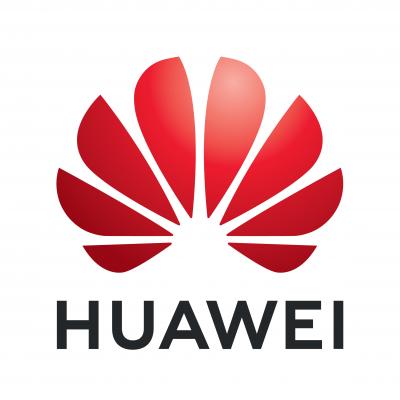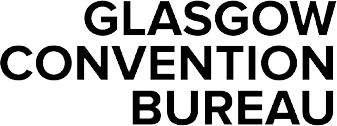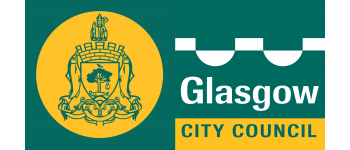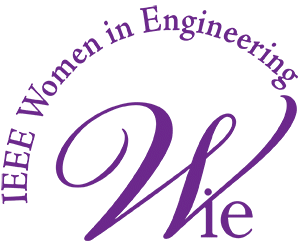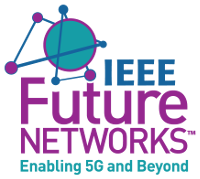Congratulations to our Best Papers Awards Winners
Track 1
Integrated Sensing and Communication for Joint GPS Spoofing and Jamming Detection in Vehicular V2X Networks
Ali Krayani (University of Genova, Italy & Queen Mary University of London, United Kingdom); Gabriele Barabino (University of Genova, Italy); Lucio Marcenaro (Università degli Studi di Genova, Italy); Carlo S Regazzoni (University of Genoa, Italy)
Track 2
Conditional Generative Adversarial Network Aided Digital Twin Network Modeling for Massive MIMO Optimization
Weiliang He and Cheng Zhang (Southeast University, China); Juan Deng and Qingbi Zheng (China Mobile Research Institute, China); Yongming Huang (Southeast University, China); Xiaohu You (National Mobile communication Research Lab., Southeast University, China)
Track 3
UAV-aided Two-tier Computation Offloading for Marine Communication Networks: An Incentive-based Approach
Luo Zhishen, Minghui Dai and Yuan Wu (University of Macau, Macao); Liping Qian (Zhejiang University of Technology, China); Bin Lin (Dalian Maritime University, China); Zhou Su (Xi'an Jiaotong University, China)
Track 4
Performance of 802.11be Wi-Fi 7 with Multi-Link Operation on AR Applications
Molham Alsakati (KTH Royal Institute of Technology, Sweden); Charlie Pettersson (Ericsson Research, Sweden); Sebastian Max (Ericsson Research, Germany); Vishnu Narayanan Moothedath and James Gross (KTH Royal Institute of Technology, Sweden)
Workshops
Near Optimal Hybrid Digital-Analog Beamforming for Point-to-Point MIMO-OTFS Transmissions
Mengmeng Liu (Xidian University, China); Shuangyang Li (University of Western Australia, Australia); Zhiqiang Wei (Xi'an Jiaotong University, China); Baoming Bai (Xidian University, China)
Downlink TDMA Scheduling for IRS-aided Communications with Block-Static Constraints
Alberto Rech, Matteo Pagin, Stefano Tomasin, Federico Moretto, Leonardo Badia, Marco Giordani (University of Padova, Italy); Jonathan Gambini (Huawei Technologies, Italy); Michele Zorzi (University of Padova, Italy)
Delay-aware and Resource-efficient VNF placement in 6G Non-Terrestrial Networks
Yi Yue, Xiong-yan Tang (China Unicom Research Institute, China); Wencong Yang (China Unicom Research Institute & Zhengzhou University, China); Xuebei Zhang and Zhiyan Zhang (China Unicom Research Institute, China); Chuyang Gao (University of Bern, Switzerland); Lexi Xu (China Unicom Research Institute, China)
Best Paper Awards Policy
Formal Procedure for Selecting Best Paper Awards in IEEE WCNC Conference
Nomination of Papers
- The conference organizers should reach out to the track chairs, co-chairs, and workshop chairs to seek nominations for the best paper award.
- Each track should provide 2 nominations and each workshop should provide 1 nomination.
- For nominations, select papers from top 10-15 percent of papers ranked using review scores and making sure that the proposed papers have the majority support of all chairs within the track.
- The conference organizers should provide guidelines and criteria for the nominations to follow. The guidelines should include the scope of the conference, the objectives of the best paper award, and the criteria for evaluating the papers.
- The deadline for nominations should be 1 to 2 weeks from the date of the request.
Online Voting Form
- A form for online voting should be created for the 19 nominated papers.
- The form should include the names of the nominated papers, a brief description of each paper, and a space for the voters to cast their vote.
- The form should also include instructions on how to vote, the deadline for voting, and any rules or restrictions.
Sending the Form to the Committee
- The conference organizers should send the online voting form and the deadline for voting to the committee.
- The deadline for voting should be 1 week from the date of the form's receipt.
- The rules for voting should be in accordance with the ComSoc policies (as per the attached PDF, page 196).
- The committee
members should abstain or declare if they have a conflict of interest.
Decision and Objection
- The conference organizers should tally the votes and make a decision on the best paper award.
- The committee
members should be given the opportunity to seek objections to the decision. - If objections are raised, the conference organizers should review the objections and make a final decision.
- The final decision should be communicated to IEEE ComSoc office for IEEE WCNC (Prof Halim Yanikomeroglu).
Announcement
- The conference organizers should inform all track chairs and workshop chairs that there will be 1 award per track and 3 awards across the entire workshop program.
- The conference organizers should announce the best paper award to the track chairs, authors, and website.
- The announcement should include the name of the paper, the authors, and a brief description of the paper.
- This procedure should be followed to ensure a fair and transparent selection process for the best paper award in a conference.
Committee Names
- Leila Musavian
- Muhammad Zeeshan Shakir
- Mona Ghassemian
- Majid Butt
- Marco Di Renzo
- Aryan Kaushik
- Gang Feng
- James Irvine
Nominations Received
Technical Program
Track 1:
Integrated Sensing and Communication for Joint GPS Spoofing and Jamming Detection in Vehicular V2X Networks
Ali Krayani, University of Genova, Italy & Queen Mary University of London, United Kingdom (Great Britain)
Gabriele Barabino, University of Genova, Italy
Lucio Marcenaro, Università degli Studi di Genova, Italy
Carlo S Regazzoni, University of Genoa, Italy
CRC in Coded Schemes with Bounded-Distance Decoding
Khaled Abdel-Ghaffar, University of California, USA
Track 2:
Conditional Generative Adversarial Network Aided Digital Twin Network Modeling for Massive MIMO Optimization
Weiliang He, Southeast University, China
Cheng Zhang, Southeast University, China
Juan Deng, China Mobile Research Institute, China
Qingbi Zheng, China Mobile Research Institute, China
Yongming Huang, Southeast University, China
Xiaohu You, National Mobile communication Research Lab., Southeast University, China
Precision-Mixed and Weight-Average Ensemble: Online Knowledge Distillation for Quantization Convolutional Neural Network
Zijia Mo, Beijing University of Posts and Telecommunications, China
Zhipeng Gao, Beijing University of Posts and Telecommunications, China
Chen Zhao, Beijing University of Posts and Telecommunications, China
Xinlei Yu, Beijing University of Posts and Telecommunications, China
Kaile Xiao, Beijing Union University, China
Track 3:
Online Scheduling of CPU-NPU Co-inference for Edge AI Tasks
Xian Cheng Lin, Research Institute of China Telecom, China
Rongkai Liu, Research Institute of China Telecom, China
Jiajie Xie, Sun Yat-sen University, China
Qian Wei, Sun Yat-sen University, China
Zhi Zhou, Sun Yat-sen University, China
Xu Chen, Sun Yat-sen University, China
Zhilan Huang, China Telecom, China
Gang Lu, Research Institute of China Telecom, China
UAV-aided Two-tier Computation Offloading for Marine Communication Networks: An Incentive-based Approach
Luo Zhishen, University of Macau, Macao
Minghui Dai, University of Macau, Macao
Yuan Wu, University of Macau, Macao
Liping Qian, Zhejiang University of Technology, China
Bin Lin, Dalian Maritime University, China
Zhou Su , Xi'an Jiaotong University, China
Track 4:
Broad Learning System for Indoor CSI Fingerprint Localization
Chieh Yu, National Tsing Hua University, Taiwan
Yung Ching Kuo, National TsingHua University, Taiwan
Jang-Ping Sheu, National Tsing Hua University, Taiwan
Performance of 802.11be Wi-Fi 7 with Multi-Link Operation on AR Applications
Molham Alsakati, KTH Royal Institute of Technology, Sweden
Charlie Pettersson, Ericsson Research, Sweden
Sebastian Max, Ericsson Research, Germany
Vishnu Narayanan Moothedath, KTH Royal Institute of Technology, Sweden
James Gross, KTH Royal Institute of Technology, Sweden
Workshops
Distributed Channel Allocation for Mobile 6G Subnetworks via Multi-Agent Deep Q-Learning
Ramoni O. Adeogun, Aalborg University, Denmark
Gilberto Berardinelli, Aalborg University, Denmark
Reinforcement-Learning Aided Link Adaptation for Downlink NOMA Systems With Channel Imperfections
Qu Luo, University of Surrey, United Kingdom
Zeina Mheich, University of Surrey, United Kingdom
Gaojie Chen, University of Surrey, United Kingdom
Pei Xiao, University of Surrey, United Kingdom
Zilong Liu, University of Essex, United Kingdom
Encryption-Aided Physical Layer Security via Cooperative Jamming: Beyond Secrecy Capacity with Noisy Ciphertext
Tarig Sadig,The University of Akron, USA
Mehdi Maleki, The University of Akron, USA
Nghi H. Tran, University of Akron, USA
Hamid Reza Bahrami, The University of Akron, USA
Near Optimal Hybrid Digital-Analog Beamforming for Point-to-Point MIMO-OTFS Transmissions
Mengmeng Liu, Xidian University, China
Shuangyang Li, University of Western Australia, Australia
Zhiqiang Wei, Friedrich-Alexander University Erlangen-Nuremberg, Germany
Baoming Bai, Xidian University, China
Novel Data and Energy Networking for Energy Autonomous Light-based IoT Nodes in WPAN Networks
Amila Perera, University of Oulu, Finland
Marcos Katz, University of Oulu, Finland
Downlink TDMA Scheduling for IRS-aided Communications with Block-Static Constraints
Alberto Rech, University of Padova, Italy
Matteo Pagin, University of Padua, Italy
Stefano Tomasin, University of Padova, Italy
Federico Moretto, University of Padova, Italy
Leonardo Badia, Università degli Studi di Padova, Italy
Marco Giordani, University of Padova, Italy
Jonathan Gambini, Huawei Technologies, Italy
Michele Zorzi, University of Padova, Italy
Leveraging Geospatial Data to Improve Spectrum Sharing in Mid-Band
Colin Brown,CRC, Canada
Amir Ghasemi, CRC, Canada
Power Minimization Strategy Based Subcarrier Allocation and Power Assignment for Integrated Sensing and Communication
Jia Zhu Beijing, University of Posts and Telecommunications
Yuanhao Cui, Beijing University of Post and Telecommunications, China
Mu Junsheng, Beijing University of Posts and Telecommunications, China
Longyu Hu, School of Information and Communication Engineering, China
Xiao Jun Jing, Beijing University of Posts and Telecommunications, China
Delay-aware and Resource-efficient VNF placement in 6G Non-Terrestrial Networks
Yi Yue, China Unicom Research Institute, China
Xiong-yan Tang, National Engineering Laboratory of Broadband Service Applications of ChinaUnicom, China
Wencong Yang, Zhengzhou University, China
Xuebei Zhang, China Unicom Research Institute, China
Zhiyan Zhang, China Unicom Research Institute, China
Chuyang Gao, University of Bern, Switzerland
Lexi Xu, China Unicom Research Institute & Queen Mary University of London, China
An Investigation on Intelligent Relay assisted Semantic Communication Networks
Shao Bo Ma, Northwestern Polytechnique University, China
Wei Liang, Northwestern Polytechnical University, China
Boxuan Zhang, Northwestern Polytechnique University, China
Dawei Wang, Northwestern Polytechnical University, China
An Analysis of Multicasting Optimisation Mechanisms for Intelligent Edge Computing with Low-Power and Lossy Networks
Israfil Biswas, Manchester Metropolitan University, United Kingdom
Mohammed Al-Khalidi, Manchester Metropolitan University, United Kingdom
Muhammad Atif Ur Rehman, Manchester Metropolitan University, United Kingdom
Byung-Seo Kim, Hongik University, South Korea
Ali Kashif Bashir 1032127, Manchester Metropolitan University, United Kingdom
Sponsor Statement
WCNC 2023 Best paper awards are sponsored by IET and Wiley.





